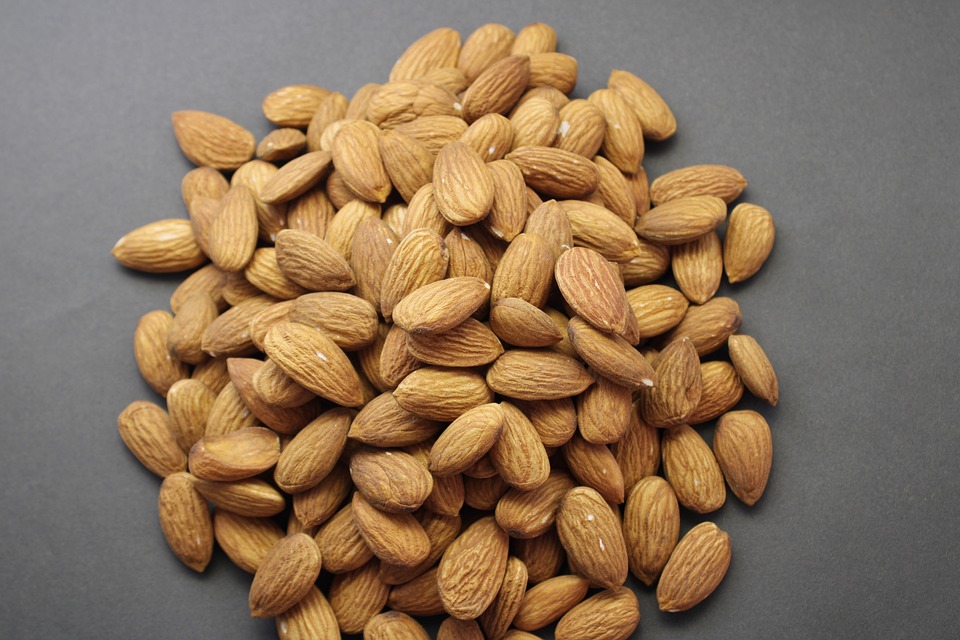
The dietary habits of people living near the Mediterranean Sea, such as those in Spain, Italy, Greece, and Turkey, offer a blueprint for the Mediterranean diet. This food plan focuses on the eating customs traditional to the area.
An eating regimen that is mainly comprised of vegetation puts the emphasis on foods like fruits, nuts, legumes, seeds, and vegetables as well as pure olive oil and lean proteins.
Studies suggest that there may be beneficial impacts on cardiovascular and neurological wellbeing, that it could combat inflammation, and that it could be advantageous for weight loss. This diet does not provide precise directions on how much to eat and is usually high in carbs, thus it may not be the most suitable choice for everyone.
Meals of the Mediterranean diet typically consist of plain, uncomplicated components that are packed with taste. The ?United Nations Educational, Scientific, and Cultural Organization? (UNESCO) defines the diet as a lifestyle that matches the original Greek understanding of the term “diet,” which translates to “way of life.”
Living a healthy lifestyle involves constructing meals out of fresh and whole-food ingredients, generally cooked in the comfort of one’s own home.
This diet places an emphasis on the social nature of sharing a meal and emphasizes the pleasure of eating. It recommends smaller platefuls than what some people may generally take.
Benefits of the Mediterranean Diet
In light of understanding the Mediterranean type of cuisine, it’s possible that you could be pondering why it has such a high regard. It’s been demonstrated in studies that this approach to eating provides numerous health benefits that are connected to increasing one’s lifespan, which is the reason professionals often advise it as a top choice for attaining extended life.
Here are those Mediterranean diet benefits:
You Might Lose Some Weight
The Mediterranean diet was not designed to help with weight loss, but if you are carrying extra weight, it may be a beneficial consequence.
A Nutrients? review published in March of 2019 discovered a diet that was associated with a decrease in weight, a lower body mass index, and a reduced circumference of the waistline – although the progress was slower than other diets that were developed to encourage weight loss.
Your Brain Will Probably Thank You
An August 2019 study from Diabetes Care, surveying nearly 1,500 people over two years, has discovered that people with type 2 diabetes who adhered to the Mediterranean diet and controlled their condition showed higher cognitive abilities than those who opted for different diets.
The analysts went beyond just finding an association, to stating that nutritious dietary regimes, like the Mediterranean diet, can enhance cognitive ability in grown-ups who do not have diabetes.
A study conducted in April 2020 examined 8,000 individuals, some of whom had age-related macular degeneration and others who did not, in regards to Alzheimer’s and dementia. Results indicated that adhering to the Mediterranean diet could be linked to a decreased chance of cognitive deficiency.
By contrast, the influence on cognitive performance was not as great; these changes were seen in the population as a whole, so one would be unlikely to feel an improvement in their cognitive ability.
A study posted in the BMJ’s publication called Gut from five different countries in February of 2020 showed that the Mediterranean diet may inhibit cognitive reduction and feebleness in elderly people.
This investigation discovered that this eating regimen bolsters sound maturing by advancing “great” stomach related microorganisms and diminishing irritation, which leads us to the following advantage.
It May Tamp Down Inflammation
Your body’s natural response to sickness or injury is marked by inflammation. Typically, inflammation manifests as redness and swelling, and in proper doses can be beneficial for the body, aiding in its healing and repair, according to the Cleveland Clinic.
But persistent, low-grade inflammation can be dangerous. A variety of things, from stress to lack of exercise, may be responsible and can make you more susceptible to life-threatening conditions such as heart disease, diabetes, and cancer.
Studies have shown that consuming healthy, nourishing meals may help to minimize long-term inflammation. The Harvard Health Publishing attests that the Mediterranean diet is filled with anti-inflammatory ingredients, such as fruits and vegetables brimming with antioxidants (e.g. tomatoes and greens), olive oil, nuts, and seafood.
You May Reap Heart-Healthy Benefits
It is not shocking that the Mediterranean diet, which is consistent with the dietary and lifestyle recommendations of the American Heart Association (AHA), leads to improved heart health.
AHA reports that heart illness appears less often in Mediterranean nations compared to the United States.
A probable cause: Most of the fat consumed in a Mediterranean diet comes from monounsaturated sources like olive oil, unlike saturated and trans fats, which increase cholesterol levels. It’s possible that disparities in physical activity could be a contributing factor.
A recent research published in the Journal of the American College of Cardiology in April of 2020 determined that replacing animal-based fats like butter with just a half-tablespoon of olive oil each day can be connected with a lower likelihood of developing cardiovascular disease.
This research was the initial investigation to assess the correlation amongst Americans and comprised of over ninety thousand individuals across a 24-year span.
In April 2020, findings from a comprehensive meta-study, released in The BMJ, reported the benefits of a Mediterranean Diet. The study, which examined 121 randomized trials, discovered that the eatery style could lessen the risk of cardiovascular issues such as increased blood pressure or cholesterol and that this effect remained even after twelve months.
In addition, taking in omega-3s or consuming a lot of fatty fish – a basic element of the Mediterranean style of eating – is linked to having lower triglyceride levels and bigger HDL cholesterol molecules. This is advantageous as they are better at eliminating harmful cholesterol and potentially warding off the buildup of plaque and heart issues, based on a February 2020 analysis of 26,034 people born female according to JAHA.
The Foods Are Budget-Friendly
Although the Mediterranean diet has a sophisticated title, the meals it entails do not have to be luxurious. In contrast, the diet has its origins in the food historically consumed by people of poorer economic backgrounds.
Budget-friendly vegetables, such as onions, carrots, tomatoes, and cucumbers, are frequently utilized in Mediterranean cooking. Legumes, beans, cheese, and noodles are reasonable to purchase and can be found at many grocery shops.
The only item you may need to spring for? Extra-virgin olive oil can be more expensive than other kinds of oils, such as butter or vegetable oils.
It’s Easier to Stick With Than Some Other Diets
A December 2019 study in “The American Journal of Clinical Nutrition” found that the Mediterranean diet is more sustainable than other diets, such as paleo or intermittent fasting.
In this study, 250 individuals had the ability to pick from 3 diets and then had their development tracked for a year without any assistance from a nutritionist.
All in all, the conclusions indicated that the Mediterranean diet was the most straightforward to commit to, and a greater number of people kept to it for longer than 12 months. Those that persisted with their diet and exercise plan experienced the greatest weight loss in the long term.
Potential Cons of the Mediterranean Diet
Certain individuals may have some disadvantages that they experience while adhering to the Mediterranean diet. However, many of these are surmountable.
Cost
You do not have to acquire expensive, name-brand edibles or specific health supplements to follow the Mediterranean diet. Many individuals have voiced worries about the expense of certain edibles such as fish, nuts, seeds, and olive oil.
As an illustration, costlier proteins are generally seen as being seafood compared to other animal sources.
Cost-Saving Tips
In order to save money, Kelly Toups, a Registered Dietitian and Licensed Nutritionist who works as the Director of Nutrition for the not-for-profit Oldways, advises shoppers to check out the weekly discounts at their local grocery store. For instance, one can take a recipe that requires a particular type of fish such as cod or sea bass, and substitute it with a fish that is more affordable or on offer in the local area.
Don’t discount frozen seafood either. Frozen food tends to be cheaper than its fresh counterpart and, when defrosted, can be prepared with great results. Canned fish is another cost-effective option.
Additional Guidance May Be Needed
It has been discovered that a Mediterranean type of eating regimen could be responsible for reducing the occurrence of diabetes and lowering of levels of glucose in the bloodstream. Nonetheless, for some individuals with diabetes extra guidance might be needed while using this diet.
A focus on grains, fruits, and vegetables (such as starchy vegetables) may cause meals to be rich in carbohydrates. It is essential for persons with diabetes to ingest stable, predictable amounts of carbohydrates throughout the day in order to guard against significant elevation in blood sugar levels or, if one is taking insulin or particular oral drugs, severely low sugar levels.
Individuals with diabetes should still adhere to this plan. On the contrary, it can be a great choice. If you have diabetes, it may be beneficial to work with a trained dietitian so that you can plan the ideal amount of carbohydrates for your meals while still following the main guidelines of the Mediterranean diet.
Restrictions May Feel Challenging
This eating plan suggests diminishing the amount of red meat and extra sugar taken in, which could be difficult for certain folks. Those familiar with the typical American food pattern may ingest added sugar in prepackaged foods on a regular basis. Adherents to the Mediterranean lifestyle should only have added sugar on special occasions.
Bearing in mind that lowering any quantity of extra sugar would be advantageous, don’t be dissuaded from trying. Having a diet that follows down the lines of a Mediterranean style, with minimal added sucrose, is preferable to a Western diet with a lot of sugary components.
In the same way, if it’s difficult to eat less red meat, following this eating plan while including types of unrefined red meats like flank, top round, and brisket half flat, in meager helpings, is a good solution.
Concerns About Alcohol Intake
Many experts have expressed doubts about how beneficial it is to recommend consumers include regular wine consumption as part of a Mediterranean diet. Toups believes it can be. Research suggests that when alcohol is taken in moderation, along with a nutritious diet, physical activity, and good company, it can be beneficial for health.
Toups states that following traditional diets such as the Mediterranean one and limiting oneself to one 5-ounce glass of wine per day for women or two 5-ounce glasses daily for men can be an advantageous strategy to promote overall cardiometabolic health and strong interpersonal bonds.
What happens when alcohol is used in other contexts? When alcohol is combined with things like smoking, lack of a balanced diet, or doing dangerous things such as driving, notable health issues are sure to arise, according to her.
It is not recommended that people who do not currently consume any alcohol should begin drinking, according to the newest edition of the Dietary Guidelines for Americans published by the USDA. Yet those adults who do opt to drink alcoholic beverages should be aware that it is better for their health to drink in moderation instead of more. According to the United States Department of Agriculture, women should have no more than one beverage daily when they opt to consume alcohol and men should have a maximum of two.
If you and your doctor come to the conclusion that it is safe for you to consume alcoholic beverages in combination with a nutritious diet and exercise, it could possibly be beneficial to your cardiac health. It is not necessary to consume alcohol to observe the positive effects of this type of eating plan. It is particularly important to refrain from drinking alcohol if there is a record of alcohol dependency in your family or if you are currently expecting a baby.
May Fall Short on Some Nutrients
The United States Department of Agriculture highlights the fact that the majority of Americans do not consume satisfactory levels of calcium and vitamin D in their dishes. Those that prefer the Mediterranean way of life typically eat fewer dairy products, so they will need to make up for it by taking in these vitamins and minerals from different sources.
Researchers discovered that Spanish youth who did not follow the Mediterranean diet sufficiently were unable to obtain their suggested daily calcium quota, regardless of their inclusion of dairy in their meals. The investigators came to the conclusion that the absence of calcium from other sources of food was the cause.
Fortunately, there are other options besides dairy for getting calcium and vitamin D. Other vegan dietary sources of calcium include plant-based milk alternatives such as soy milk, orange juice that has been fortified, whole-grain cereals, seafood, spinach, beans, soybeans, and sesame. Foods like these are encouraged in the Mediterranean diet.
Research has demonstrated that both grown-ups and youngsters who stick to this beneficial plan have a more advantageous nutrient profile and lower occurrences of individuals not getting enough micronutrients.
Research has suggested that women who adhere to a Mediterranean diet could have more robust bone tissue and a decrease in the chance of breaking a bone.
No Specific Guidelines
The Mediterranean diet does not limit any foods, instead providing general guidelines that emphasize a certain way of eating. Unlike diets that focus on calorie-counting or restricting certain foods, the Mediterranean diet follows guidelines that prioritize the consumption of certain essential foods like fruits, vegetables, whole grains, and healthy fats. There is not a single source that can be used to adopt this dietary plan.
For those who are more comfortable with a structured diet, this can be a difficult situation to be in. It could be hard for them to maintain their weight or to lose weight. The USDA has put out a Healthy Mediterranean-Style Eating Pattern that can act as a blueprint for people who wish to have a more accurate view of their eating habits.
Follow the instructions of the guide by selecting a calorie goal that meets your nutritional needs and selecting different kinds of food from each category. Eat these foods within the suggested portions over time. Healthy adults have a daily intake of calories that can range from 1,600 to 3,200, based on their age, gender, weight, and amount of physical activity.
May Be Time-Consuming
Buying ingredients suitable for a Mediterranean diet, and cooking the meals, is likely to be more time-consuming than heating up pre-packaged meals or getting quick fast food. This diet suggests avoiding processed food items and instead, balance meals with whole ingredients.
Undoubtedly, certain individuals may need some time to adapt to the change. Many individuals discover the joy of cooking and come to appreciate making meals for themselves or those they love. You can also make a lot of food ahead of time to have at later meals.














